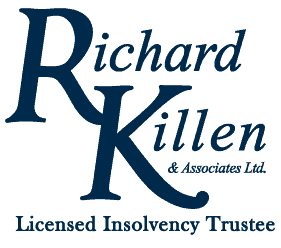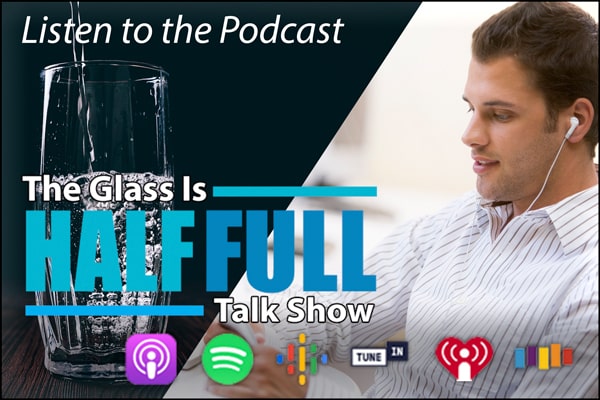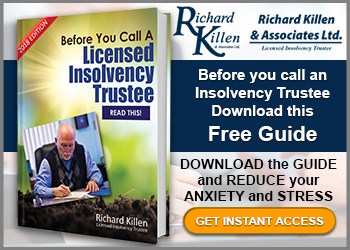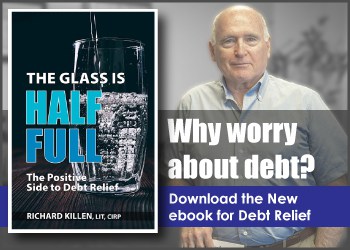Best and Worst Ways to Get Money Quickly in a COVID-19 Financial Crisis
Posted on: May 13, 2020Posted in Advice from Richard, Finances, Financial Advice | Comments Off on Best and Worst Ways to Get Money Quickly in a COVID-19 Financial Crisis

The coronavirus pandemic has already cost over a million Canadians their jobs, leaving many in a tight spot and wondering how to pay their bills. Many were caught unprepared for the swift financial blow. Nearly 40 per cent of Canadians under the age of 55 who have lost their job have almost no capacity to pay for their bills without an income and have only one week or less of savings to cover emergency costs like food and rent, according to this Global News Ipsos poll.
With many people filing unemployment claims since the pandemic lockdown, we’ve seen how cash is vital in these unprecedented times. Money — that is, liquid cash — is what enables many of us affected by this global health crisis to survive when our income or savings have been drastically reduced or totally wiped out. In crisis situations like this pandemic, even a small amount of cash on hand could actually save lives.
The Canadian government has put out a full range of tools to support the flow of credit to households and businesses in response to the COVID-19 crisis. However, we need to keep in mind that there are pros and cons to nearly every type of loan. So, when you’re searching for ways to come up with cash in this emergency, you’ll need to weigh your options carefully and also think about your future financial health when this crisis is over.
Kelley Long, who is a Chicago-based certified financial planner and CPA, offers this advice,“You want to try to protect your credit and make it as easy as possible to recover once things get back to normal.”
“That can mean selling possessions you don’t need instead of taking out a payday loan, or using a zero-percent credit card instead of withdrawing from your retirement account,” Long adds.
Let’s look at some ways to get money quickly in this economic crisis and weigh in the best and worst points of each:
Avail of Unemployment Benefits

Apply for EI and COVID-19 emergency benefits right away if you’ve been laid off. Employment Insurance (EI) is for permanent residents and citizens who recently lost their job. The COVID-19 Emergency Response Act includes emergency benefits for those who don’t qualify for EI, such as CERB payments which will provide unemployed workers with $500 a week for up to 16 weeks.
- Apply for EI here
- Apply for COVID-19 emergency benefits through either Service Canada or the Canada Revenue Agency (CRA). Do not apply to both.
Be prepared for long hold times and include some room in your budget for any delays or glitches in receiving these support payments. Also, watch out for scams such as fraudulent texts and emails or calls asking for personal information or account details. Banks and government agencies will never send emails, texts, or call you asking for personal information or account details, or advise you of your benefits particularly if you have not applied for these benefits.
One important thing to be aware of: Government benefits like CERB are taxable. So, be prepared in future tax seasons.
Tap Into Your Long-term Savings
There’s no shame in withdrawing money from a long-term savings plan like your Tax-free Savings Account (TFSA) or your Registered Retirement Savings Plan (RRSP) to deal with a short-term crisis, especially if you have no emergency savings or have no savings at all.
If you’re going to withdraw, keep in mind:
- Money in a TFSA can be withdrawn at any time with no cost and that money will be tax-free.
- You can withdraw from your RRSP anytime as long as your funds are not in a locked-in plan.
- Money withdrawn from an RRSP is taxable. One, you’ll have to pay an immediate withholding tax upon withdrawal and, second, when filing your taxes at the end of the year, you must declare the full amount as income and it will be subject to income tax at your marginal tax rate.
- You can save on taxes if you withdraw from a spousal RRSP or a Group RRSP.
Both are ways to get cash without incurring potentially expensive debt, however RRSP money may cost you a lot in taxes.
Unsecured Line of Credit

A line of credit or LOC, also known as a revolving credit, is a good source of emergency funds. It’s like having money in the sense that you can use a predetermined credit limit at any time and you can continuously borrow from it provided you do not exceed the limit allowed.
In an unsecured Line of Credit there is no collateral required, so you’re not putting anything of value at risk.
An unsecured LOC has several advantages to personal loans and credit cards:
- Compared to a loan, you only pay interest on the money you actually use.
- An LOC is reusable, and you can borrow any amount again and again when you need it as long as you stay within the limit.
- You can use as much or as little as you want while staying within limit.
- The rate of interest on LOCs is much lower than on credit cards and those of personal loans.
The biggest disadvantage is if you don’t regularly pay it off, interest will pile up and add up to a large amount and this may get you into serious debt and financial trouble.
Home Equity Line of Credit
If you are a homeowner, this can be a lifeline.
A Home Equity Line of Credit, or HELOC, is a revolving amount of credit that is guaranteed by your home.
- Interest rates are considerably lower than that for unsecured lines of credit because your property is there as collateral.
- You can borrow large amounts of money depending on the equity in your home.
- HELOCs can be used for anything just like cash.
Term Loans
Unlike lines of credit, term loans have to be repaid over a set period of time with interest charges. The interest rate is somewhat similar to an unsecured line of credit. A term loan is a good option to consider if you need to get a large amount of cash up front and repay it in smaller amounts for a longer repayment term.
0% APR Credit Card
Many credit card companies are offering 0% APR periods of one year for new purchases to help their customers get through these difficult times. The advantages:
- You don’t have to open a new credit line
- 0% APR for a year is a huge help and might be enough to get you through three to six months of unemployment or emergency expenses
Call your card provider to ask if this is something that can be right for you.
Delay and Defer

Preserving your cash is a top priority during these financially struggling times and even if that can affect your plans to pay down your debt, that’s okay for now. Make use of deferral payment provisions set up by your bank, credit card provider and mortgage lender. These were created especially to help those who have been financially harmed by the coronavirus pandemic. If you have student loans, the COVID-19 Emergency Response Act includes a provision on deferral of student loan payments for six months and you will not be charged interest or penalties for this. Contact each of your creditors and find out which payments you can defer and for how long.
If you don’t have cash and you’re worried, stop paying that loan for the months that you can and be sure to talk to your financial institution first. This gives you some available cash that you can use to meet your urgent basic needs. In normal times it’s not something we would recommend you do, but in times of survival it can be a big advantage as you won’t have to worry about being charged interest, penalties or fees for the months you skip payments. The drawback is the payments pile up and may become due all at once, so make sure you make repayment arrangements with your lender if you need more time to pay.
Payday Loans

If you have been laid off and have no more paycheck for the next months, this may no longer be an option for you as lenders will require you to provide proof of employment, like a paystub to avail of this.
If you still have regular income, we recommend making this option your very last resort even in a difficult financial situation.
Some things to watch out for:
-
- Payday loans are short-term loans which you have to pay back from your next paycheck.
- The loan is an unsecured loan, but you’ll have to provide a post-dated check for the total loan amount including fees or you’ll have to fill out a form that will allow the lender to withdraw the total loan amount directly from your bank account when it becomes due. If you can’t pay when the loan is due, the lender can help itself to the contents of your bank account.
- Payday loans are an expensive way to borrow money compared to other ways of borrowing money. You can only borrow up to $1,500 and can be charged bi-weekly interest rates of up to 25% or 652% in Annual Percentage Rate (APR).
The biggest disadvantage is that payday loans are a debt trap with extremely high fees and interest rates. If you can’t repay on time you’ll face more fees and interest charges and it can put you in an unending cycle of debt.
Try to find an alternative, and if you can’t, make sure you borrow only as much as you can afford to pay with your next paycheck.
Credit Card Cash Advance
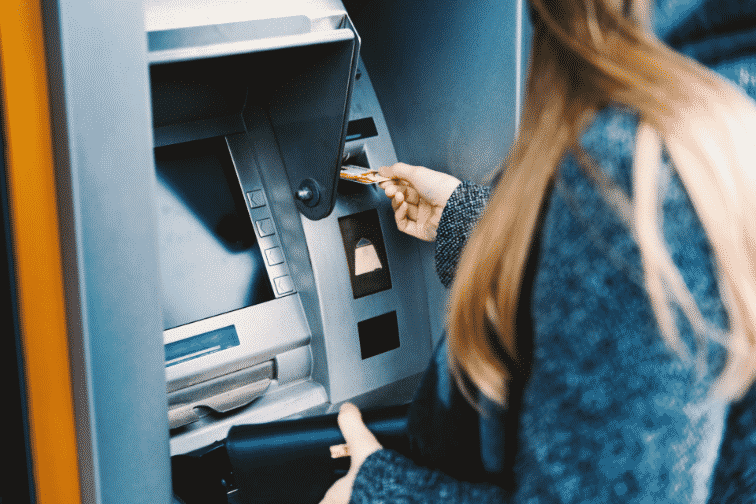
Like payday loans, a credit card cash advance comes with high interest and high fees. Additionally, if you max out your card, it could negatively affect your credit score. If you have a credit card with a low or 0% promo rate, you can make use of this to make a cash advance instead of a regular credit card.
These are scary times and millions of Canadians are in dire need of cash. Although there are many ways to get money quickly to help get you through this COVID-19 crisis, you still have to exercise some control in using any type of credit as this is money that you’ll still need to pay back with interest. Take time to research each way to borrow money and carefully weigh the pros and cons of each so you can avoid short-term decisions that can hurt your future ability to get credit.
To sum it all up.
As you can see, there are many, many ways of dealing with the financial problems resulting from Covid-19 and the government lockdowns. Probably at least one of them will be available to you. But there is one important point I’d like to make: before you go using up your savings or depleting your RRSP or cashing in your TFSA or even incurring additional debts, please consult with a Licensed Insolvency Trustee like Richard Killen & Associates and inform yourself of the complete picture. It may be one of the smartest moves you ever make.
So call us. We’ll be happy to answer all your questions and provide you with information you need during this difficult time. Contact us by telephone at 1-888-545-5365 for a free consultation now. Or you can email us at lawrence@killen.ca or brampton@killen.ca , or simply check out our website at www.rkillen.ca.
